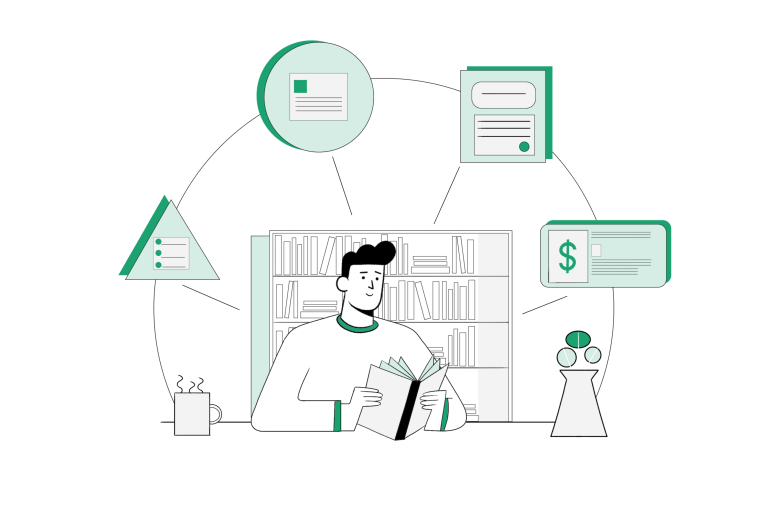Debt plagues many Americans, and Californians are no exception. Fortunately, the state of California has strict laws in place to ensure that debt relief companies operate within ethical boundaries, so that consumers don’t end up in even deeper financial hardship.
"*" indicates required fields
What is JG
Wentworth’s California Debt Relief Program?
1
One monthly program payment
2
We Create Your Debt Resolution Program
3
We Negotiate on Your Behalf

Laws that govern debt relief companies in California
Of these laws, one of the most crucial is the California Debt Settlement Services Act. This law requires debt relief companies to provide specific disclosures to consumers regarding their services and fees. Additionally, this law stipulates that debt relief companies are prohibited from charging upfront fees before providing any services.
Another important law is the Federal Trade Commission’s Telemarketing Sales Rule. This rule requires debt relief companies to provide specific disclosures during telemarketing calls, including the total cost of their services, how long it will take to achieve results, and any negative consequences that may result from using their services, among other things.
Partner with a company people trust
Because of our famous 877-CASH-NOW commercials, we’re one of the most well-known names in financial services. People trust us because they know us—and when you work with us, you’re also letting our five-star reputation work for you.




How often do you pay per month?
1
Payment pet month
How long does it take to pay off your debt?
24-48
Months on average
How many accounts do our clients enroll?
6
Accounts on average
How much do our clients save?
51%
Percentage on average
Run the Numbers on Our Debt Resolution Program
How often do you pay per month?
1
Payment pet month
How long does it take to pay off your debt?
24-48
Months on average
How many accounts do our clients enroll?
6
Accounts on average
How much do our clients save?
50%
Percentage on average
California Debt Relief FAQs
First and foremost, it’s important to note that debt collectors in California cannot try to collect any debt indefinitely. The state has a statute of limitations on how long debt collectors can attempt to collect a debt. This timeframe, which is set forth in California’s Code of Civil Procedure s 337, is four years from the date of the first missed payment to a creditor. After four years, the debt is considered “time-barred,” meaning it can no longer be legally collected. Please note that there are circumstances which can stop or “toll” the statute of limitations clock under California state law. Because of the intricacies of this process, you should consult with an independent professional before making any decisions based on this information.
It’s important to keep in mind that even though the debt cannot be legally collected after the statute of limitations has passed, it will still remain on your credit report for seven years from the first date of delinquency.
As previously mentioned, the statute of limitations on debt in California is four years from the date of missed payment. It’s important to note that this statute of limitations can vary depending on the type of debt you have. For example, the statute of limitations on oral contracts (verbal agreements not put in writing) is two years in California. The two-year limit begins from the date of the last payment or activity on the account, so if the creditor or debt collector does not file a lawsuit within two years, the debt is considered time-barred and cannot be legally collected.
It’s also important to note that the statute of limitations can be extended if you make a payment on the debt after it has become time-barred. This is known as “re-aging” the debt, and it can reset the clock on the statute of limitations.
In California, community property is considered any asset or debt that was acquired during the marriage. This means that if your spouse accrued a debt before or during your marriage, you may still be responsible for it, even if you had no direct involvement.
It’s important to note that even if your spouse is the primary account holder for a debt, if it’s considered community property, you are still liable for it. This can be a tricky area of the law, so it’s important to consult with a qualified attorney if you have questions about your liability for your spouse’s debts.
When someone passes away, their debts do not simply disappear. In California, the estate of the deceased is responsible for paying off any outstanding debts. The estate includes any property or assets that the deceased owned at the time of their death. These assets will be used to pay off any outstanding debts, and if there are not enough assets to cover the debts, the remaining balance will be forgiven.
If you are concerned about leaving behind debt for your loved ones to deal with after your death, it’s important to take steps to manage your debt while you are still alive. This may include working with a debt relief company or a financial advisor to develop a plan for paying off your debts over time.
Debt collectors in California can only garnish your wages under certain circumstances. They must first obtain a court order to do so, and even then, there are limits to how much they can take. Typically, they can only garnish up to 25% of your disposable income. If you are facing a wage garnishment, it’s important to seek legal advice as soon as possible. An attorney can help you understand your rights and options for dealing with the garnishment.
The Fair Debt Collection Practices Act prohibits debt collectors from threatening consumers with imprisonment. However, it’s important to note that there are some circumstances in which you can be held in contempt of court for failing to comply with a court order related to your debt. If you are facing legal action related to your debt, it’s important to seek legal advice to understand your rights and obligations.
The bottom line
Dealing with debt can be a stressful and overwhelming experience, so it’s important to know your rights as a consumer in California. Debt relief programs, and the laws which govern them, are designed to provide relief to those struggling with debt. If this includes you, consider reaching out to a debt relief company such as JG Wentworth to get your finances back on track.
Financial Education
Are you ready?
If you’re committed to starting fresh, we’re committed to helping you.
1Monthly payment and total savings are dependent on many factors, including, but not limited to, program fee, enrolled debt amount, monthly program payment and willingness of creditors to negotiate. The JG Wentworth Debt Relief Program fee is a percentage of each enrolled debt amount and may vary by state or debt load. The debt savings goal does not take into account the 18-25% program fee. The average amount saved on the debt balance does not take into account the program fee. Any decision to cease making payments to your creditors is yours. JG Wentworth does not provide direction on this matter.
*Disclaimer: The calculator on this web site is for estimation and educational purposes only. JG Wentworth makes no guarantees regarding its accuracy and specifically disclaims any and all liability arising from the use of this or any other calculator on this web site. Use at your own risk and verify all results with an appropriate financial professional before taking action. We are not registered investment advisers, attorneys, CPA’s or other financial service professionals and do not render legal, tax, accounting, investment advice or other professional services.
**The results, based on the information provided by you, represent an estimate for each payoff option.
Debt resolution program provided by JGW Debt Settlement, LLC (“JGW” of “Us”)). JGW offers this program in the following states: AL, AK, AZ, AR, CA, CO, FL, ID, IN, IA, KY, LA, MD, MA, MI, MS, MO, MT, NE, NM, NY, NC, OK, PA, SD, TN, TX, UT, VA, DC, and WI. If a consumer residing in CT, GA, HI, IL, KS, ME, NH, NJ, OH, RI, SC and VT contacts Us we may connect them with a law firm that provides debt resolution services in their state. JGW is licensed/registered to provide debt resolution services in states where licensing/registration is required.
Debt resolution program results will vary by individual situation. As such, debt resolution services are not appropriate for everyone. Not all debts are eligible for enrollment. Not all individuals who enroll complete our program for various reasons, including their ability to save sufficient funds. Savings resulting from successful negotiations may result in tax consequences, please consult with a tax professional regarding these consequences. The use of the debt settlement services and the failure to make payments to creditors: (1) Will likely adversely affect your creditworthiness (credit rating/credit score) and make it harder to obtain credit; (2) May result in your being subject to collections or being sued by creditors or debt collectors; and (3) May increase the amount of money you owe due to the accrual of fees and interest by creditors or debt collectors. Failure to pay your monthly bills in a timely manner will result in increased balances and will harm your credit rating. Not all creditors will agree to reduce principal balance, and they may pursue collection, including lawsuits. JGW’s fees are calculated based on a percentage of the debt enrolled in the program. Read and understand the program agreement prior to enrollment.
JG Wentworth does not pay or assume any debts or provide legal, financial, tax advice, or credit repair services. You should consult with independent professionals for such advice or services. Please consult with a bankruptcy attorney for information on bankruptcy.
Client Grievance Procedure: If you are unable to resolve an issue with your Debt Specialist or Client Services Representative, please request to speak with a manager. If you cannot reach a resolution with a manager, please escalate communication via email at [email protected] or direct mail to the business address listed on our contact page.
Affiliated Business Arrangement Disclosure
JGW Lending, LLC (NMLS ID #2365173) is a wholly owned subsidiary of The J.G. Wentworth Company, LLC (“JGWC”). JGWC also owns 100% of JGW Debt Settlement, LLC. Because of this relationship, your referral to JGW Lending, LLC may provide JGWC with a financial or other benefit. JGW Debt Settlement, LLC may receive Debt Resolution Program fees, earned due to the settlement of your debts made with the proceeds of your loans from JGW Lending, LLC. Any program fees paid to JGW Debt Settlement, LLC will be made in compliance with the Telephone Consumer Protection Act 47 U.S.C. § 227 and applicable state laws. You are NOT required to use JGW Lending, LLC for a personal loan. Please click here for the full Affiliated Business Arrangement disclosure form.


